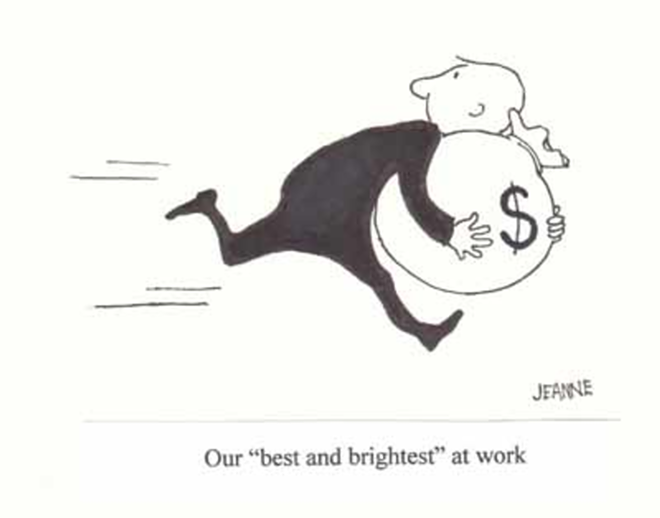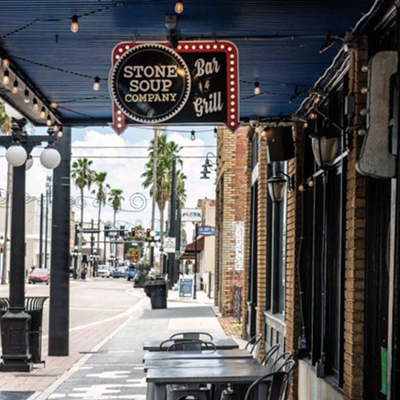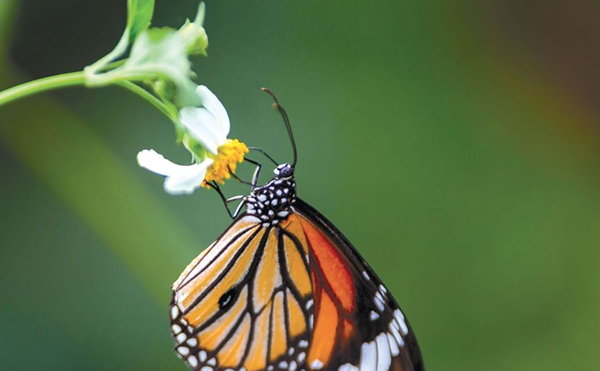My theme is alwey oon, and evere was —
Radix malorum est cupiditas.
—from "The Pardoner's Tale" by Chaucer
One wonders about the idea of progress. Back in the 14th century, Geoffrey Chaucer (1342-1400) wrote in The Canterbury Tales, "The root of all evil is greed." Our contemporary corollary, when we search for a guilty party, is "Follow the money."
But a friend of ours mailed us an article by Kyle Smith headlined "Greed: Still Good" from Rupert Murdoch's New York Post (rated in a survey by Pace University as "the least credible major news outlet in New York"). Basically Smith reduces the economist Milton Friedman's praise of greed to childishness: "Greed," he writes, "meaning an unseemly or immoral desire for more, does not exist because there is nothing wrong with want." One might as well say that lust doesn't exist because there's nothing wrong with sexual urges (after all, even Jimmy Carter confessed to an occasional twinge).
"Greed is good" would be a surprise to the church, among other institutions, which has for centuries listed greed as third among the Seven Deadly Sins, between gluttony and sloth. Smith believes that those who are "against" greed confuse it with selfishness. But this isn't the case. Essentially, people like Smith confuse greed with ambition.
No one's against ambition. We want our children to be ambitious, but not greedy. Why mince words? The Wall Street wheeler-dealers were greedy, not ambitious. They weren't making pizzas (an example Smith uses), or anything else; they just found ways to game a system to make piles of basically tainted money, just as mortgage brokers and real estate salesmen were greedy when they made risky and fraudulent deals that they knew were likely to fail (but they got their commissions). Of course there are honest people on Wall Street, and honest, ambitious brokers and salespeople. But without regulations, the greedy ones will, and did, charge in and knock the whole economy to bits in a piggish rush to collect their fees and bonuses.
In a recent column, conservative David Brooks recognized that "like bees, humans have long lived and died based on their ability to divide labor, help each other and stand together in the face of common threats." Evolution isn't just competition; it also necessarily involves cooperation; in this Darwinian equation, compare John McCain and Barack Obama. Cooperation and discipline are needed to restore the balance (McCain's chief financial advisor, Phil Gramm, is known as the "high priest of deregulation"). To put it another way, 30 years ago rich pirates hijacked the U.S. economy, and have been hauling the treasure away ever since. In more than one way, Obama's our anti-pirate.
The OED (Oxford English Dictionary) defines greed as "inordinate or insatiable longing, especially for wealth." Almost everyone, sometimes, wants more wealth — it's the "inordinate or insatiable" aspect that turns this longing to greed. Nothing wrong with making lots of money: consider the good Bill Gates and Warren Buffet do with their charities, or the occasional CEO who works for $1 a year. But the friend who sent the article ("Greed: Still Good"), although himself a generous man, apparently agrees with Smith's idea.
The subtext seems to be that Obama is some sort of Marxist or Socialist — an idea equal in merit to Bush's "Weapons of Mass Destruction" hogwash. The fear of the wealthy is simply that they'll be losing money, with Obama's administration tightening regulations and increasing their taxes. They'll still have more than everyone else — but they'll be losing money! They don't want to pay their fair share to this country where they've piled up so much cash. Buffet pointed out his secretary was taxed at a higher rate than he was.
For decades, while the wealthy milked the cash cow, everyone was saying how well this works; and slowly we accumulated 47 million people who are uninsured, the minimum wage slid backward, jobs and unions deteriorated, and the rich and poor separated like oil and water.
If this money did trickle down at all, statistics show that it did so at a slower rate than inflation. In no other civilized country has the wealth disparity widened as fast as America's.
Greed is often unconscious, and ignorant of its long reach ("Um, how many houses do I have? I'll have to get back to you on that"). We invest in Hummers, gut the pollution rules, sell tons of cigarettes overseas and dump thousands of automatic weapons on our own markets; so rivers in Africa dry up, South American forests sicken, Asian populations die young and 120,000 Americans get shot to death each year. It's complicated, but beneath these catastrophes lurks something that smells like greed. F. Scott Fitzgerald foreshadowed it in The Great Gatsby (1925), where the wealthy Tom and Daisy "smashed up things and creatures and then retreated back into their money or their vast carelessness ..."
At least now we have President Obama: just as his color works against prejudice, his very leanness works symbolically against greed. Chaucer also wrote: despite ourselves, after every dark and cold season, the sun will rise and warm us. It will take some time, but a better day is coming.
For I have seyn, of a ful misty morwe
Folowen ful ofte a myrie someris day.
And after winter foloweth grene May.
(from Troilus and Criseyde)
During the previous century, Peter Meinke studied Chaucer in Middle English at the University of Michigan. He and Jeanne just gave their granddaughter Sophie (age 4) a piggy bank for her birthday; Sophie has memorized "This Little Piggy" and can recite it perfectly, with feeling.

















